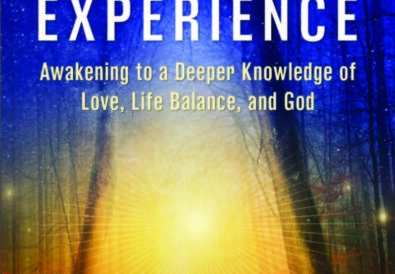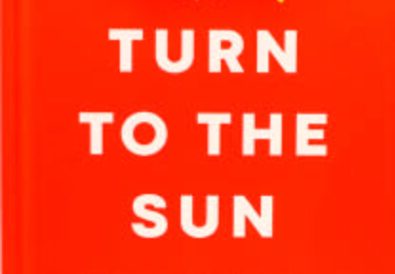I know this sounds like emotional sleight of hand, but fear is nothing more than speculation. Not a neutral form of speculation, like anticipating when things will improve, but more of a worrisome anticipation of chaos, like “This virus can’t be stopped!” Of course, in these challenging times, some fear may be unavoidable— this is normal and understandable. But when fear becomes chronic and unreasonable, then it’s time for some personal “mitigation.” We must ask, is it possible to minimize fear during this pandemic?
Without any doubt, the answer is yes!
Think of fear as occurring on a continuum: Minimal Fear/Concern is on the far right. Moderate Fear/Worry is in the center. Intense Fear/Panic is on the far left. The right side of the continuum represents someone experiencing little or no fear. As you progress along the continuum, fear morphs from moderate to extreme fear (panic) on the opposite end. Where someone falls on that continuum is unique to each individual.
For example, take this imaginary exchange between Fred and Wilma, who have just turned off the evening pandemic update on their TV. Fred: “This is terrible, I’m going to get sick and then it will kill me!” Wilma: “That’s silly, we’re doing everything we’re supposed to do. We’re going to be fine.” Same virus, two different fear reactions.
How come? For fearful Fred, we can assume that his legitimate concerns have become coupled with his own state of insecurity. When this happens, he invariably begins to move to the left on the fear-continuum. Without an insecurity component, Fred might have had a more proportionate level of fear—maybe only an understandable degree of concern, like Wilma’s.
Is Wilma lying? Is she denying her real fear? Perhaps, but it’s also quite possible that she has a different baseline of insecurity, meaning she doesn’t contaminate her objective understanding of what’s happening with an overlay of insecure “what-iffing.”
So, what is this “overlay” called insecurity? Essentially, insecurity is a feeling of vulnerability. To some extent everyone has insecurity. Why? Because no one has perfect parents, grows up in a perfect world, escapes illness, separation, or loss. But Fred has a significant habit of insecurity. And yes, insecurity is a habit. We learn to be insecure, like with any of our habits.
Habits, like cigarette smoking, or being a chocoholic, only become routine if reinforced. Your insecurity, from a very young age, had to be reinforced.
Take Fred. Perhaps because his parents divorced when he was six, he never felt safe. He became a habitual worrier, always trying to anticipate how to feel less vulnerable. Through the years, Fred may have reinforced his insecurity by trying to anticipate and over-control life. Thus, Fred finds himself in full panic mode with this virus. His fear would place him on the far left side of our continuum.
What can you do if you’re more like Fred than Wilma? For starters, you can begin to recognize that your fear isn’t a fact. It quite literally is an emotional fiction, a speculation. It’s a speculation fueled and reinforced by insecurity.
From a Self-Coaching perspective, the good news is that, since insecurity is a habit, then like any other habit, it can be broken (or at least minimized).
Are you in? Great. Let’s begin the process of “unlearning” insecurity. In order to begin to disentangle yourself from needless and excessive fear, you need to stop feeding your insecurity. Remember, insecurity is the fuel that reinforces the feelings of vulnerability.
Okay, so what feeds insecurity? Three words: doubt, fear, and negativity. Every time you feel that wave of panicky, gut-wrenching emotion, you can do what I call a “mind-check.” Step back and see whether your thoughts can be classified as doubt, fear, or negativity. If so, you’ve taken the first step toward emotional liberation. You can choose to be passively manipulated by insecurity or you can resist. You actually have a choice!
Simply knowing you have a choice will make you feel less victimized. Victims are helpless.
You are not helpless!
You might say, “But knowing that I have a choice doesn’t change the fact that this pandemic has created world-wide chaos. Isn’t that a fact and not a speculation?”
Yes, of course, these are indeed surreal and dangerous times. However, you still have a choice. Rather than being in a chronic state of fear, you could instead choose to be “concerned.” Concern deals objectively with here and now facts — not the what-if future. Concern allows you to take prudent and proportionate precaution, like washing your hands, wearing a face-mask, staying home, or maintaining safe distances from others. Concern is reasonable and healthy, whereas fear, especially chronic, worrisome fear, is unreasonable and unhealthy.
Use these three Self-Coaching steps to minimize fear:
- Employ “Mind Checking.”When feeling stressed and anxious, pause for a moment and check out what thoughts are going through your mind. Is it doubt, fear, or negativity? This is the first step in actively becoming a participant in your thinking rather than a passive victim of your reflexive fears and emotions.
- Separate insecurity thinking from here-and-now facts.The next step is to ask yourself what are the facts—not how you feel-about the facts. For example, it’s a fact that COVID-19 is killing people, but it’s an emotional fiction that you feel you’re going to get infected. Define today’s facts (remember, feelings are not necessarily facts) as they objectively pertain to you, such as dealing with sheltering in place, figuring out how to get groceries, and so on. Understand that insecurity is a habit, and like any habit, you’re either feeding it or starving it.
- Stop speculating.Remind yourself that speculating about dire future events is a fear-trap. Stay present and don’tpermit yourself to predict what tomorrow or beyond will bring. Focus on today, what you’re doing right now. Actively resist the temptation to allow insecurity to own your thinking with endless “what-iffing.” Taking charge of your emotions will require a firm act of will. Yes, you can!
Dr. Joe Luciani has been a practicing clinical psychologist for more than 40 years. He’s the internationally bestselling author of the Self-Coaching series of books, now published in 10 languages. His latest book is, Unlearning Anxiety & Depression: The 4-Step Self-Coaching Program to Reclaim Your Life (Goodman Beck, April 28, 2020). He appears frequently on national TV, radio and online, and has been featured in numerous national media sites. Learn more at self-coaching.net.

















